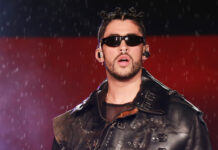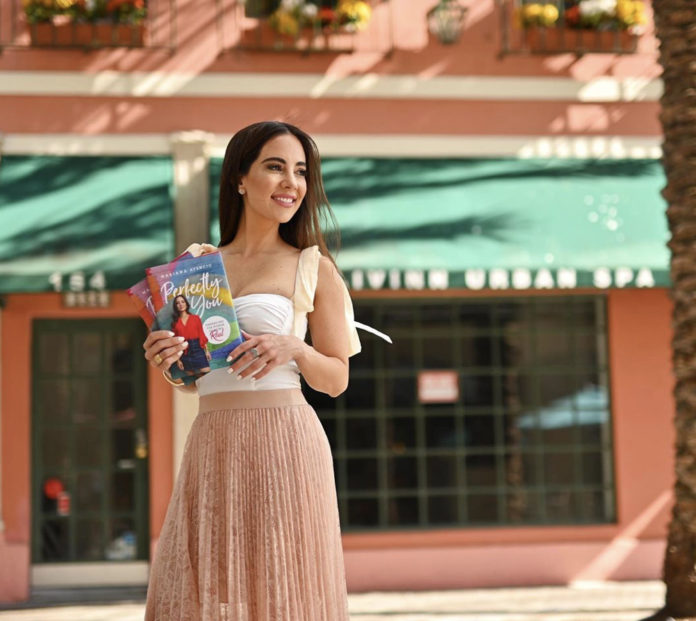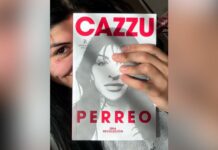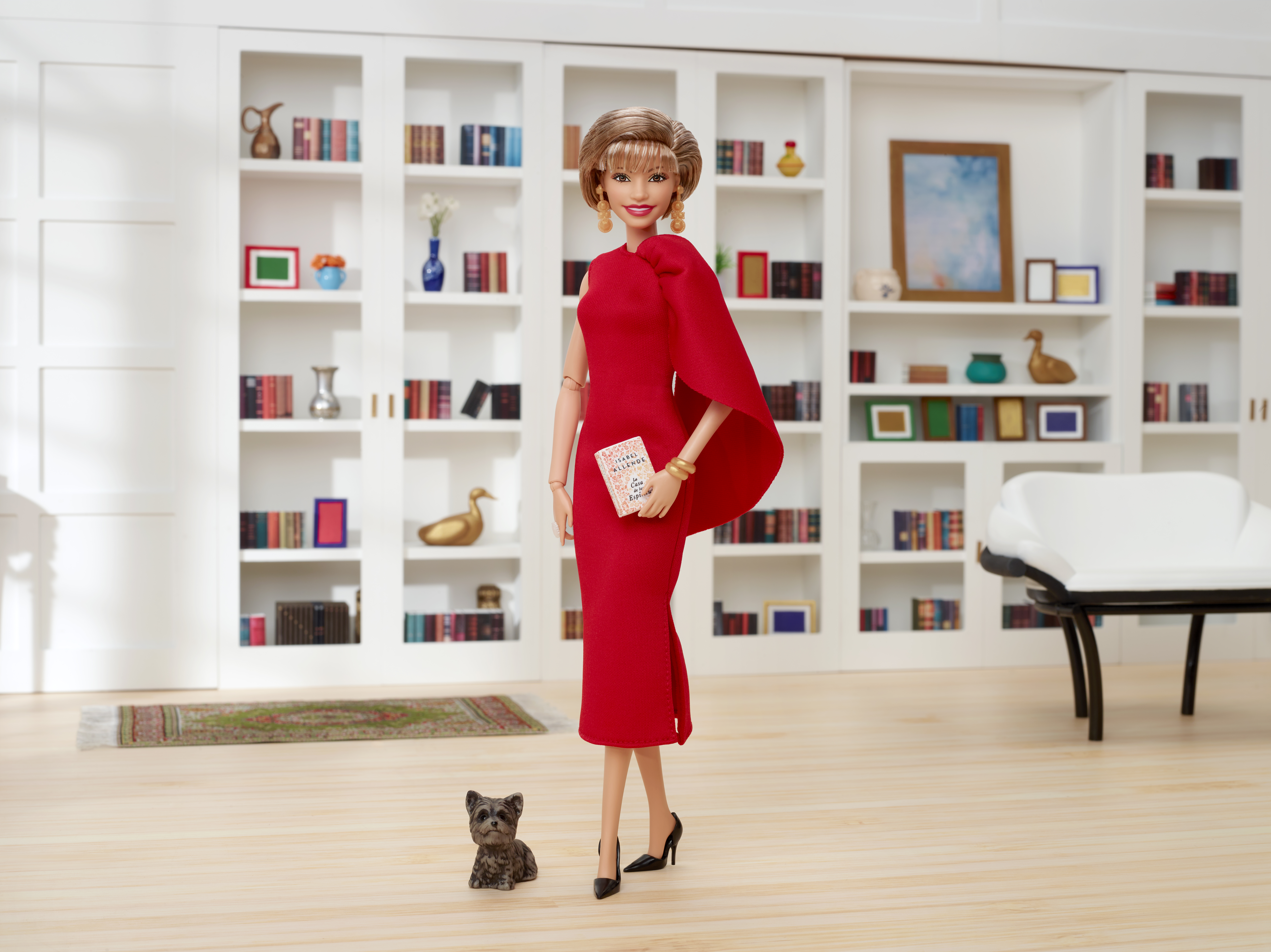Finding the universal stories that connect us — rather than divide us — is how award-winning journalist Mariana Atencio shines. Mariana’s work and presence on camera as a correspondent for MSNBC and NBC News consistently elevates the issues and narratives that might otherwise go missing in mainstream media. And as a bilingual, Venezuelan-born immigrant, she’s risen to the top of her field despite having to break the mold of what an American journalist can be. Actually, scratch that: It is because of her unique background and life experience that she has been able to make a name for herself.
Today, Mariana’s highly anticipated memoir Perfectly You: Embracing the Power of Being Real will give us a deep dive into her life story, connecting us all through her personal narrative. The book also presents readers with what she calls a “road map” to transformative celebration of the self.
Mariana and I chatted over the phone last week while she was in Oklahoma following up on her coverage of last year’s teachers’ strike, sharing personal stories of immigration, accents, and grief. P.S. I omitted the part of the interview where I totally cried — and where she totally rolled with it, telling me, “Being vulnerable is a beautiful thing.” Truth. It was perhaps an encapsulation of why Perfectly You sold out on the first stop of her book tour this past weekend in Miami.
Kat: As you were writing Perfectly You, I imagine that is was something you felt compelled to do, to share your story as a storyteller. I feel like your story is something that anyone can connect to. Is that something that you were thinking about as you were writing it?
Mariana: I wrote it primarily as a road map for people to fully embrace what makes them unique and perfectly suited to give back to the world. Not even just for Latinas or for women. This is a book for everyone. If you’re trying to take your business to the next level, if you’re a parent who wants to have the work life and family life, if you are somebody who’s trying to make a pivot in your life for whatever reason, a recent college grad… I wanted to put my story out there, the mistakes that I’ve made, the times that I’ve fallen and gotten back up, the lessons that I’ve learned as an immigrant in America over the past 10 years, as someone who’s really had to, in coming here, rethink, “Who am I? What do I have to give that’s unique?”
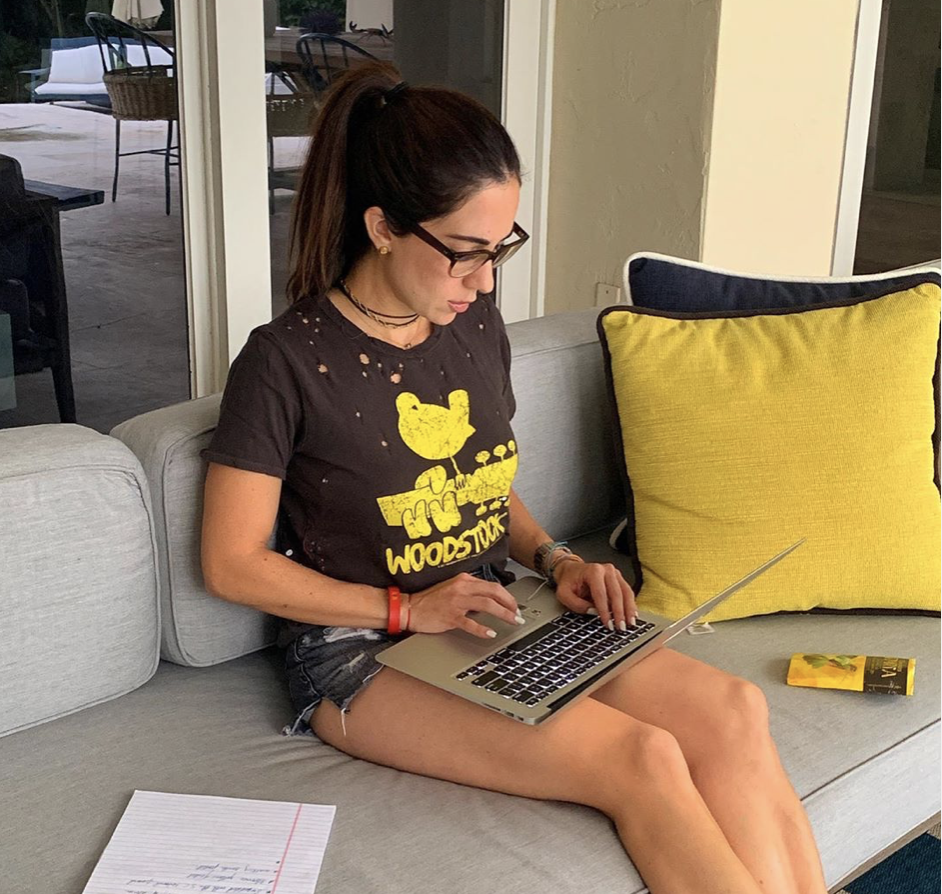
I wanted to present that road map to all people — and to women especially because I find that in covering so many stories all over the world that so many of us struggle with this idea of perfection. And this is a guide to let go of that and find how you can maximize your unique traits and make them advantages.
KM: So, my mother is Korean. We moved to the states from South Korea in the early 90s, moved to the Midwest — which was a complete shock for her because she had all these ideas in her head of what living in the United States was going to be like based on movies that she’d seen. Although she is fluent in English — she even worked on an American military base in Seoul — she has always had a very thick accent. At the time, there weren’t books like this out there that were showing her that there was someone out there supporting her, encouraging her to explore her identity, telling her it was okay to have an accent; she’s always tried to assimilate. So it’s really poignant for me to hear you speak about wanting to show people the way. Even though we do live in a different time, there are so many people out there that need to hear this or read this.
MA: I would say that we’re living in a different time… yes and no. You know, we still hear that Latinos should assimilate and learn more English and what not, and I just want to tell people that if you have an accent, that’s a beautiful thing! That actually means you speak more than one language! Accents should be worn as medals. They’re nothing to be ashamed of. In fact, they are showcasing the beauty and the diversity of America. That’s one of my primary messages. It’s the accents of people that come from other communities, other countries, that have made this amazing country their home, like I have.
But also, translate the accent into any other thing that might make you feel different from wherever you’re coming from, whether it’s your family background, whether it’s a special ability that you have. I talk in the book about my sister, about how she was in a car accident, living with a disability afterward, and how she’s overcome that. Those are things that tend to be seen as weaknesses or something that makes you “different” or the “other.” But if you flip the script, you make those competitive advantages and things that give you the opportunity — where you need perspective — to be a voice and find your purpose and tap into your true power.
KM: From what I know about your experience as a journalist, challenges are what have often inspired you to take action. Is taking on this memoir, was it initiated by something in particular, or is it something that you had been considering for a long time in terms of sharing your story?
MA: I began thinking about it, honestly, when I crossed over from Spanish to English language television three years ago. I took this leap of faith and started hearing from so many young people on social media who were following my journey: “This is a win for all of us.” “What have been the main challenges?” “We see you as one of us up there, we love hearing you pronounce your name the way it’s meant to be pronounced.” “We love seeing how you dress, honoring your culture, and how you cover the stories of our communities.” So I began to sense this thirst for a message of encouragement. To tell them that they could also be on that screen… but beyond television as well, how their stories were of value. So that was the birthplace of the book. Giving back to those young people.
I saw that on steroids after I gave a TED talk in January of 2017 — about six months after I crossed over — and afterward I started getting all of these messages. I gave a TED talk titled “What Makes You Special” because the students from the University of Nevada, Reno told TED that they wanted to hear from more diverse speakers, and they suggested me. It went viral. It’s now one of the top ten TEDx talks seen on YouTube all over the world. It’s been translated in eight languages. I get messages and emails from people in Korea, in Turkey, from all over the United States about what this TED talk meant to them.
There was so much more to develop and talk about, so I started putting the book together and then it all just went by extremely fast after the devastating loss of my father. I said, “I have to do this. I owe it to him and I owe it to all of these people.” The book is therefore dedicated to him. We found the right fit with HarperCollins in the Christian division because losing my dad… I leaned on my faith so much that it was just the right moment to do it. It all happened in the span of about a year, which is crazy, but the amazing thing is that it is all so, so fresh. In the book, it’s the voice of Mariana today. It’s anecdotes and things and stories that happened as late as the teacher’s protest [in Oklahoma] last year, midterm elections last year, so it’s incredibly fresh material that will resonate with a lot of readers.
KM: I think it’s so beautiful that your work and your presence as a journalist was so inspiring for people to reach out to you, and then that you in turn made this beautiful cycle happen where they are inspiring you to do more… I think that is such an important force in anything.
MA: It’s a conversation with this beautiful community of people that expands languages, age brackets, cultures, a community that I’ve been able to interact with every day on my social media. It’s almost like I feel like I’m a bridge between people of different generations and cultures. I love that I’ve also, with their help, been able to translate that in television when we’re doing live translations in Spanish or covering stories in a traditional outlet but using social media and our phones and going to places all over the world.
KM: I read your piece that you wrote for NBC in the fall about your family’s experience in the hospital with your late father. You’ve been covering so many stories for the greater Latino community, and a shortage of medicine and medical care in Venezuela has been an issue for some time now. But for it to be happening to you, was there something surreal about that? As a journalist and as a storyteller, how did you ultimately decide to report on your firsthand experience or tell the story of your life in the context of journalism?
MA: I got this call about my father being in the ICU and he was so healthy and it was totally unexpected. I had been covering the story of Venezuela’s crisis obviously for years, covering the medicine shortages and food shortages, but that was the moment when I had to fly down there, where the story hit home.
I didn’t plan on doing the story about what we were living through, but I spent so much time in that hospital literally sitting on the floor — you know, since he was in the ICU you can’t be in the room all the time — and I had this notepad and I would just write what they asked for every day in terms of medicine, what the doctors response were, what we had to get, how I was feeling… so that when it all finally happened, I found myself back at work and I said, “What am going to do with all these notes?” I feel like people here in America, you know you hear about what’s happening in Venezuela, but you don’t really understand how it can happen to anyone. It’s not a matter of resources or being able to get the medicine — it is affecting everyone.
I found so much support at NBC to be able to tell the story from a firsthand perspective. The response was overwhelming. It’s probably the hardest thing that I’ve ever put on paper. But it propelled me further in my life’s mission to tell real stores, through Perfectly You and through my reporting. My mission is always to tell the stories of those who cannot tell it for themselves. That’s why this book is dedicated to my father. In the end he always believed in me and believed in the power of stories and encouraged me to not feel like the “other.” Ever. So this book Perfectly You is not just my story but it’s my father’s story, my country’s story, the story for anyone who has ever felt “othered.”
KM: You are going to be a keynote speaker at the American Library Association Conference in D.C. later this month. What are you bringing to that event?
MA: I’m excited. I’m going to be the first keynote speaker from this particular HarperCollins imprint who will be on the main stage. So I know it’s an honor to have been included… at a place where Michelle Obama has spoken! I want to talk about the importance of reading to bridge gaps and further our understanding, because as you described with your mom, you know, as a little girl growing up in South America, my vision of the United States was created through movies and books. It was my dad bringing me any English book he could get his hands on so that I could imagine this place in my mind and its value.
I unfortunately had to make the tough decision to flee my country, but I knew where I wanted to go: the beacon of freedom, the United States. Reading really helped me have an academic background and platform to be able to come here and do a lot of hard work to succeed. The audience [at the ALA] is going to be librarians, so I want to highlight the importance of reading to bridge cultures, but also about the importance of my Latinx culture, my immigrant experience, to continue to tell those stories so that we can all better understand the different voices and the unique perspectives we all bring to the table.
For Image credit or remove please email for immediate removal - info@belatina.com








